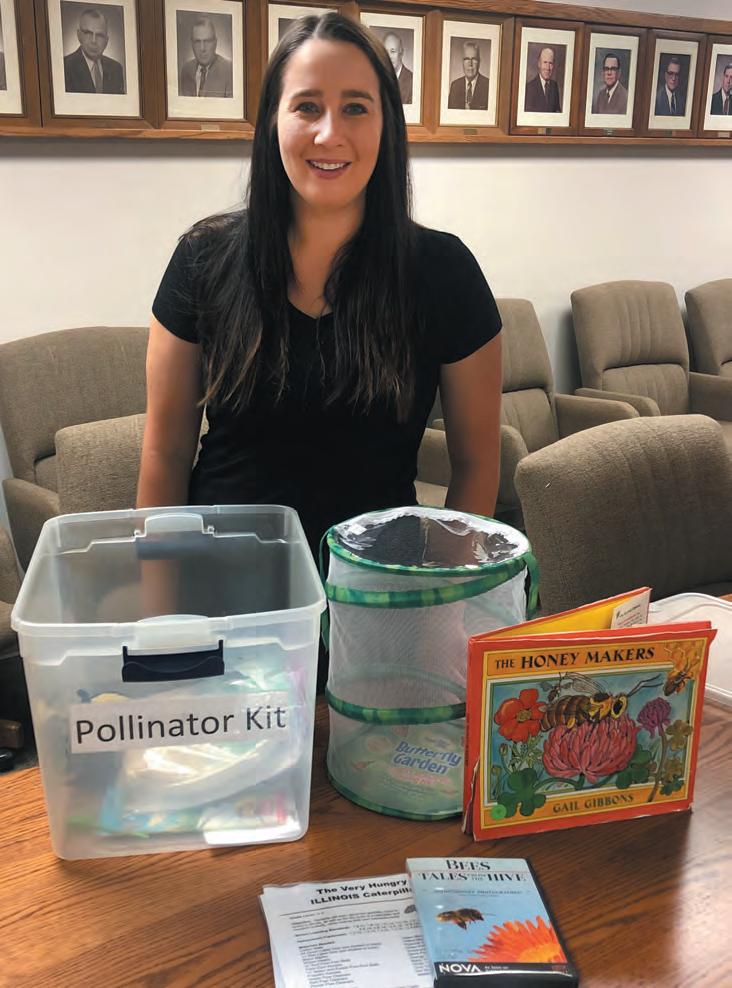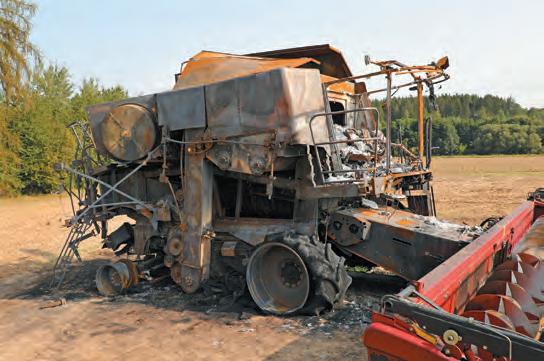Prevent combine fires this harvest Extension tips to reduce risk
URBANA, Ill. — Combine fires are one of the most common and expensive types of fire incidents in production agriculture. They also can cause substantial setback during harvest. “Combine fires often start behind the operator’s view, so it may be difficult to easily or quickly extinguish,” said Josie Rudolphi, University of Illinois Extension associate research scientist. Several preventative actions can reduce the chance of fires. One major cause of combine fires is the ignition of trash and debris, such as leaves, chaff, stalks and other organic material, that build up around the engine, exhaust, or other machine parts. When those get hot during operation, they may combust.
To prevent a debris fire, frequently blow debris with a portable leaf blower or air compressor, Rudolphi said, and inspect the engine compartment where chaff may have accumulated around bearings, belts and other moving parts. Another potential cause of fires is from a leak in the combine’s fuel or hydraulic
system. Fuel or hydraulic fluid can ignite when it comes in contact with something hot, such as an engine’s muffler and exhaust system. To prevent a fire in the fuel or hydraulic system, check lines before harvest and replace any leaking, cracked, or worn-looking lines. Keep fuel and hydraulic lines away from sources of heat.
“It’s important to perform routine inspections throughout harvest to ensure lines are not leaking,” Rudolphi said. “Never refuel a combine with the engine running. Turn off the engine and wait 15 minutes to reduce the risk of a spill volatilizing and igniting.” Combines should be equipped with at least two readily accessible fire extinguishers that an operator can reach and use before a fire becomes uncontrollable. Have additional fire extinguishers in the tractor, grain cart and pickup truck. “Most importantly, have an emergency plan in place so all employees know what to do in the event of a combine fire,” Rudolphi said. In the event of a fire, turn off the machine and exit the cab immediately, Rudolphi said. Call 911 before attempting to extinguish the fire and maintain a safe distance while using the extinguisher.
When it come to Ag loans, our roots run deep.
Tevis Mott | Jason VanLanduit | Luke Lanxon | Neal Knauf At Central Bank Illinois, we’re your neighbor and friend. We’ll even save you a trip and come out to see you. Just give us a call. 815.875.3333
Call Now for a Free Quote
Custom Buildings for All Your Storage Needs
Equal Housing Lender/Member FDIC
SM-PR1826876
AGRICULTURAL • RESIDENTIAL EQUESTRIAN • COMMERCIAL Home: 815-379-9317 • Cell: 815-303-9321 Answering Machine: 815-379-2350 Email: haroldrollo@yahoo.com www.rolloconstruction.com Ag Mag – 13
BCR Ag Mag_111320.indd 13
11/5/20 7:28 AM







